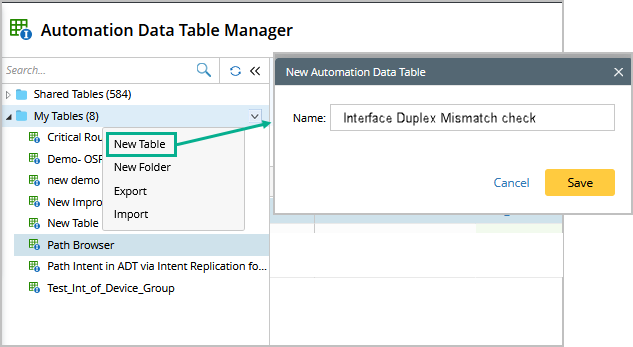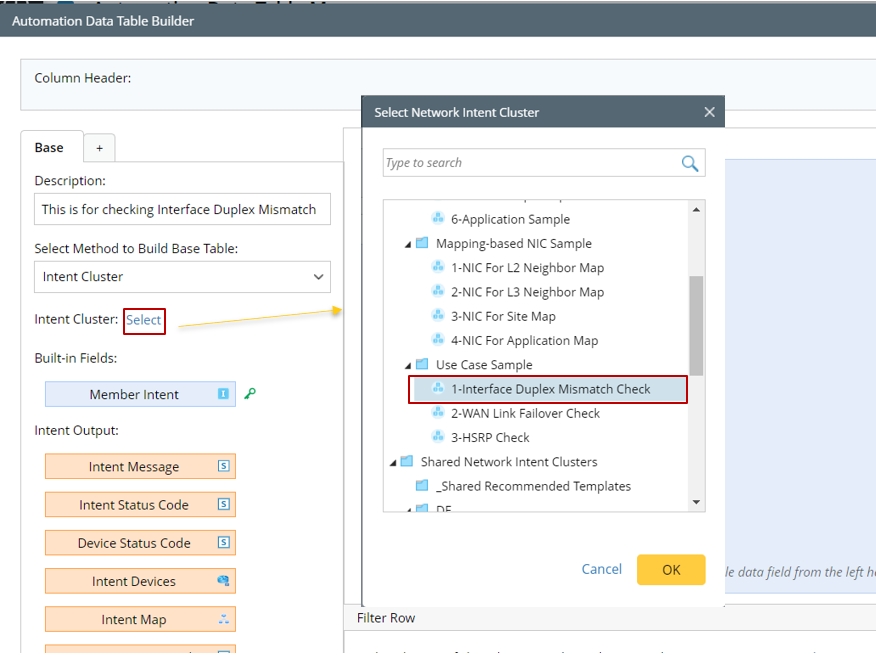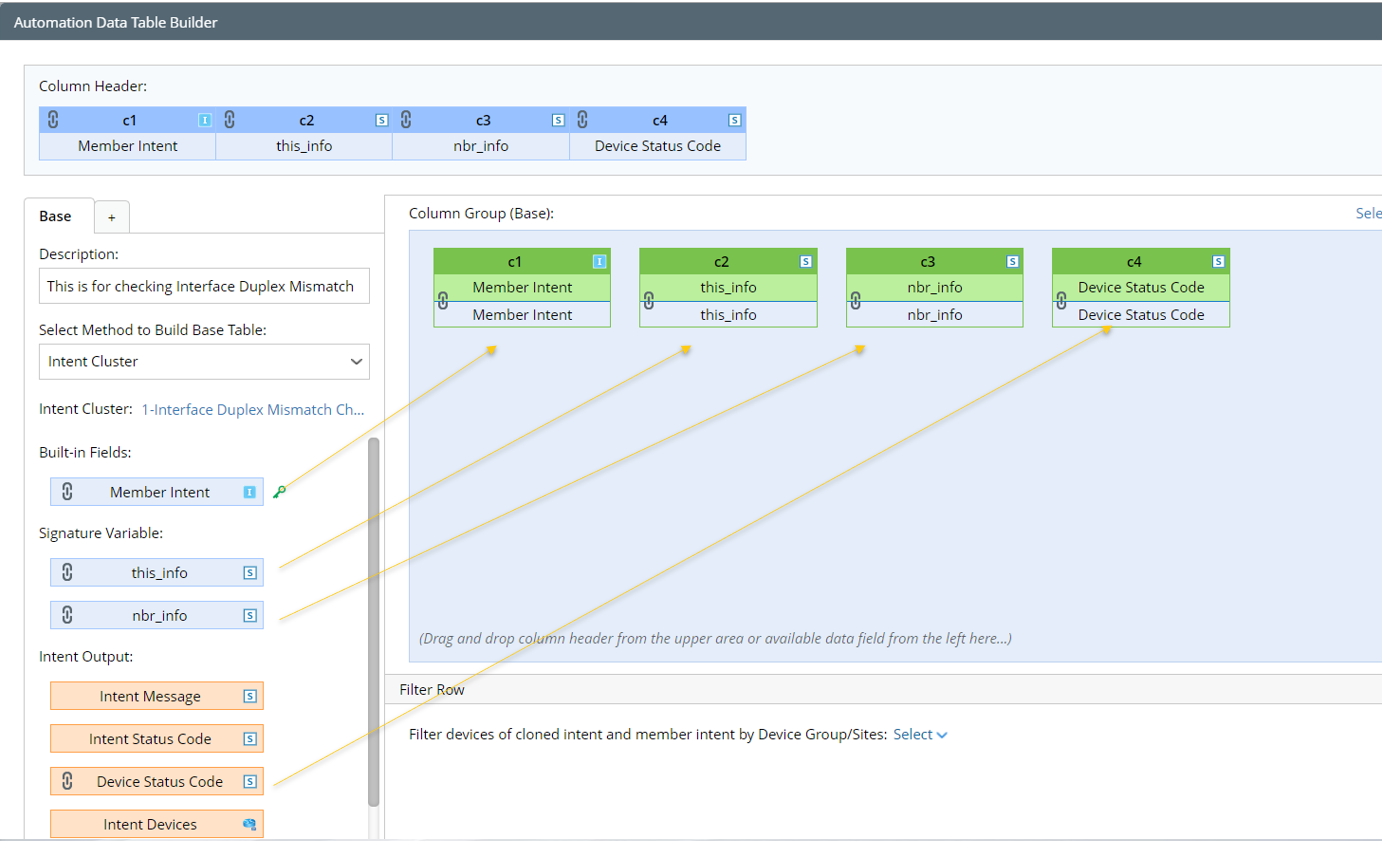Build Network Technology ADT Via Intent Cluster
When to build ADT by selecting intent cluster?
When member intents of an intent cluster contain the critical network assets or properties useful to solve a repeatable network problem, this intent cluster can be used to create an ADT to populate the useful data, such as source device properties. Then, the ADT can be further used in PDAS. 
Define Basic Table Data via Intent Cluster
The eigen variables used for intent cluster decoding can fill the table rows. The member intents, member intent devices, and signature values are built-in data sources. Intents outputs can also be added to ADT.
Prerequisites: Create an intent cluster (for example, NIC "Interface Duplex Mismatch Check") and generate member intents for this cluster.
- Go to Automation Data Table, then create a new table and name it (for example "Interface Duplex Mismatch Check").

- Go to Automation Data Table Builder>Base of the created ADT.
- Under the Base tab, define the following settings:

- Description: Input descriptions for the base table to describe its use and function.
- Select Method to Build Base Table: Select Intent Cluster.
- Intent Cluster: Select the created intent cluster (for example, Interface Duplex Mismatch Check) for building the base table.

- Mapping Available Fields to Column Group: Drag and drop the available fields to the column group definition area to create ADT columns automatically.

There are three field categories in this area to be selected.
Note: To perform common operations on a column, click corresponding items from the drop menu
- Built-in Fields: The built-in fields available for this base table are listed in this area to be selected. Applicable fields include Member Intent Name, Member Intent Devices, Devices, and signature variables.
- Signature Variables: Select data fields to use the data as the signature variables for the intent cluster.
- Intent Outputs: Other intent information can be displayed in the intent output columns of the ADT, such as intent message, intent status code, intent devices, intent map, intent CLI commands, and last execution time.
- Filter Row: Select sites or devices for filtering the data in the table row.

- Click Save and Build to save all the settings.
The following table describes available data fields for building base table if the intent cluster is the data source.
| Field Type | Fields | Description |
| Built-in Field | Member Intent Name Member Intent Devices | The built-in fields are created from the data used for intent cluster definition. |
| Device Signature Variables | The format of the field is: signaturevariablename - columnvariablename | The signature variable is defined by the table columns. The signature variables can only be used in the base table of ADT and when the method to build base table is Pre-replicated Intent Template. |
| Intent Output Field | Intent Message Intent Status Code Device Status Code Intent Devices Intent Map Intent CLI Commands Last Execution Time | The intent output fields are created from intent details of the intents replicated from the intent cluster. |